Planning worship?
Check out our sister site, ZeteoSearch.org,
for 20+ additional resources related to your search.
- |
User Links
Person Results
H. J. B.
1803 - 1871 Person Name: Henry James Buckoll, 1803-71 Author of "Lord, behold us with Thy blessing" in The Methodist Hymn-Book with Tunes =========
Buckoll, Henry James, M.A., son of the Rev. James Buckoll, Rector of Siddington, near Cirencester, Gloucester; born at Siddington, Sept. 9,1803. He was educated at Rugby and Queen's College, Oxford, graduating B.A.in 1826, and became Assistant Master at Rugby the same year. He took Holy Orders in 1827, and died at Rugby June 6, 1871. He was probably the editor of the first edition of the Rugby School Collection. In 1839 he edited a Collection of Hymns for the Rugby Parish Church, and in 1850 compiled, with Dr. Goulburn, a new edition of the Collection for the Rugby School Chapel. That collection contains 14 of his hymns, a few of which were translations from the Latin and German. His Hymns translated from the German were published 1842. It contained 67 translations from Bunsen's Versuch, 1833, most of which are in the original metres, and are annotated in this work under their first lines in German. Buckoll's hymns and trs. are mostly found in the hymn-books of the Public Schools.
-- John Julian, Dictionary of Hymnology (1907)
H. J. B.
Ada R. Habershon
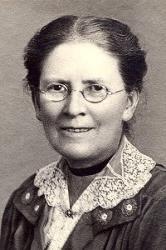
1861 - 1918 Author of "Look up my soul and hail the home" in Songs of Pilgrimage
Ada R. Habershon
Ernest August Hagfors
1827 - 1913 Person Name: Ernest August Hagfors, 1827-1913 Composer of "PILGRIM SONG" in The Covenant Hymnal
Ernest August Hagfors
Christopher Newman Hall
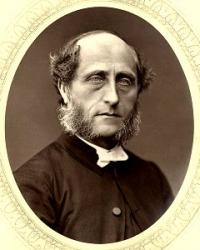
1816 - 1902 Author of "We pray for those who do not pray" in Songs of Pilgrimage, a Hymnal for the Churches of Christ, Part I Hall, Christopher Newman, LL.B., son of J. Vine Hall, was born at Maidstone, May 22, 1816, and educated at Totteridge School, and Highbury College, London. In 1841 he graduated B.A. at the University of London, and LL.B. in 1856. From 1842 to 1854 he was minister of Albion Church, Hull; and from 1854 he has been in charge of Surrey Chapel, and its continuation, Christ Church, Westminster. He was also chairman of the Congregational Union of England and Wales in 1876. In addition to several prose works, and numerous tracts (one of which, "Come to Jesus," has been translated into 30 languages and has reached a circulation of two millions), he published:—
(1) Hymns composed at Bolton Abbey, and Other Rhymes, Lond., Nisbet, 1858; (2) Cloud and Sunshine, Lond., Hamilton, Adams & Co., 1870; (3) Christ Church Hymnal, for the use of the Congregation of Christ Church, Westminster Road, Lond., Nisbet, 1876; (4) Pilgrim Songs in Sunshine and Shade, Lond. 1870 (this is No. 1 with additional verses); (5) Supplemental Pilgrim Songs; and (6) Songs of Earth and Heaven, Lond., Hodder & Stoughton, 1886.
In the Christ Church Hymnal, 1876, there are 82 original hymns by Mr. Hall, 10 of which previously appeared in his Hymns composed at Bolton Abbey, &c, 1858. All the 82 hymns are signed “N. H." Of his hymns the most popular are, "Accepting, Lord, Thy gracious call"; "Friend of sinners, Lord of glory"; and "Hallelujah, joyful raise" (q.v.). In addition the following are also in common use outside of his Hymnal:—
1. Come, Lord, to earth again (1876). Advent.
2. Day again is dawning (1872). Morning.
3. Friend of sinners, hear my cry (1844). Lent.
4. God bless our dear old England (1876). National Hymn.
5. I know who makes the daisies. Providence.
6. Lord, we do not ask to know (1876). Missions.
7. O Jesus, Who to favoured friend (1876). B. V. M. given into the charge of St. John. [Rev. W. Garrett Horder]
-- John Julian, Dictionary of Hymnology
=====================
Hall, C. N., p. 481, i. Several recent hymns are included in his Lyrics of a Long Life, 1894. The additional hymns which have come into use since 1890 include:—
1. Come to Jesus! Friend of sinners. [Jesus the Saviour.] Lyrics, 1894, p. 176. Previously in Congregational Sunday School, Supplement, 1891, and School Hymns, 1891, as "Come to Jesus! Mighty Saviour."
2. I want to live and be a man. [Manliness.] Lyrics, 1894, p. 240, headed "A Boy's Hymn." A response to "I want to be an Angel" [p. 559, i.]. Previously in School Hymns, 1891, No. 334.
3. I've wandered far from home. [The Prodigal.] Pilgrim Songs, 1871, p. 17; Christian Endeavour Hymnal, 1896.
4. Lord! we obey Thy kind command. [Repentance.] Lyrics, 1894, p. 193. Previously in School Hymns, 1891, No. 137, as "Lord! I obey."
5. 0 for the love, the perfect love. [Fearless Love.] Lyrics, 1894, p. 199. Previously in School Hymns, 1891, No. 482.
6. To David's Son, Hosanna. [Hosanna to Jesus.] In Christ Church Hymnal, 1876, No. 550, the Sunday School Hymnary, 1905, &c.
Mr. Hall died Feb. 18, 1902. [Rev. James Mearns, M.A.]
--John Julian, Dictionary of Hymnology, New Supplement (1907)
Christopher Newman Hall
Elvina M. Hall
1820 - 1889 Author of "Jesus paid it all" in Songs of Pilgrimage Hall, Elvina Mable, was born at Alexandria, Virginia, in 1818; and was married, first to Mr. Richard Hall, and then, in 1885, to the Rev. Thomas Myers. Her hymn, "I hear the Saviour say" (Christ All and in All), in I. D. Sankey's Sacred Songs and Solos, 1878, is somewhat popular in Great Britain and America. It was "written on the fly-leaf of the New Lute of Zion, in the choir of the Methodist Episcopal Church, Baltimore, in the spring of 1865."
--John Julian, Dictionary of Hymnology, Appendix, Part II (1907)
Elvina M. Hall
Jacob Henry Hall
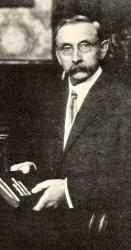
1855 - 1941 Person Name: J. H. Hall Arranger of "[There are lights by the shore of that country]" in The Crowning Day Jacob Henry Hall, 1855-1941
Born: January 2, 1855, near Harrisonburg, Virginia.
Died: December 22, 1941.
Buried: Dayton, Virginia.
Son of farmer George G. Hall and Elizabeth Thomas Hall, Jacob attended singing schools taught by Timothy Funk when he was a boy. As his love of music progressed, he earned money by trapping quail and bought a German accordion; he soon learned to play one part while singing another. After he and his brother jointly purchased an organ, he taught himself to play hymn tunes, Gospel songs, and anthems. He went on to study music theory, harmony, and composition in Harrisonburg and elsewhere, and in 1877 attended a Normal Music School in New Market, Virginia, taught by Benjamin Unseld and P. J. Merges. Afterward, he partnered with H. T. Wartman for two years to conduct singing schools and conventions. In 1890, Hall attended Dana’s Musical Institute in Warren, Ohio, and a normal school run by George & F. W. Root at Silver Lake, New York. He later served as principal of the National Normal School of Music.
Hall’s works include:
Hall’s Songs of Home, 1885
The Star of Bethlehem (Dayton, Virginia: Ruebush-Kieffer Company)
Musical Million (assistant editor)
Spirit of Praise, with William Kirkpatrick & Charles Case (Dayton, Virginia: The Ruebush-Kieffer Company, 1911)
Hall’s Quartettes for Men, 1912
Biography of Gospel Song and Hymn Writers/em> (New York: Fleming H. Revell Company, 1914)
Sources--
Hall, pp. 329-34
Lyrics--
Glorious Morning Dawns, The
O Thou Whose Matchless Power Controls
--hymntime.com/tch
Jacob Henry Hall
Walter Henry Hall
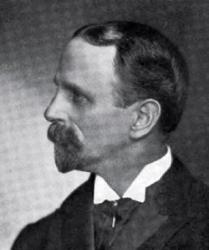
1862 - 1935 Person Name: Walter Henry Hall, 1862 - 1935 Composer of "ONEONTA" in Service Book and Hymnal of the Lutheran Church in America Born: April 25, 1862, London, England.
Died: 1938, New York City.
Buried: Boothbay Harbor, Maine, the location of his summer home.
Hall studied at the Royal Academy of Music for four years under George Macfarren, H. C. Bannister, Charles Steggall, and others. He emigrated to America in 1883, where he was organist and choirmaster at St. Luke’s Church, Germantown, Pennsylvania; St. Peter’s Church, Albany, New York; Church of the Heavenly Rest, New York City; St. James’ Church, New York City; and Cathedral of St. John the Divine, New York City. He founded and conducted the Brooklyn Oratorio Society, and founded the Cathedral Festival Choir. His works include:
Essentials of Choir Boy Training
--www.hymntime.com/tch/
Walter Henry Hall
Stuart Hamblin
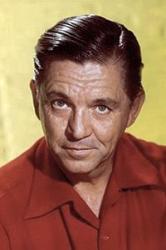
1908 - 1989 Person Name: Stuart Hamblen (1908-1989) Author of "Until Then" in Seventh-day Adventist Hymnal Carl Stuart Hamblen was born on October 20th, 1908, in Kellyville, Texas, the son of a traveling Methodist preacher, and founder of the Evangelical Methodist Church, Dr. J.H. Hamblen. Stuart’s career as a Country Western Gospel singer, composer, radio-movie personality, and master storyteller all began in 1926, on radio station on WBAP, Ft Worth, TX and sister station WFAA, Dallas, TX, where he became radio broadcasting’s first singing cowboy. The next major turning point in his career happened in 1929 where he won a talent show in Abilene, Texas and with the $100 cash prize in-hand, he headed for Camden, New Jersey, to the Victor Talking Machine Company to seek his fortune. Recording four songs for the forerunner of RCA Victor, Stuart then set out for Hollywood, California, where he auditioned at KFI and went on the air as “Cowboy Joe”. Later that year, he became a member of the original “Beverly Hill Billies” as “Dave”, radio’s first spectacularly popular western singing group. Seeing the success of having a group, Stuart decided to branch out on his own and formed one of his very first groups, King Cowboy and His Woolly West Revue. His group changed, both in name and in personnel, and by 1931, and for 21 years thereafter, Stuart stayed on top of the popularity charts on the West Coast with his radio programs: “Covered Wagon Jubilee”; “Stuart Hamblen and His Lucky Stars”; and the “Cowboy Church of the Air”.
During that time, his motion picture credits included: “In Old Monterey” with Gene Autry; “The Arizona Kid” and “King of the Cowboys” with Roy Rogers; “The Plainsman and the Lady” and “The Savage Hord” with Wild Bill Elliott; “Carson City Cyclone” and “The Sombrero Kid” with Don ‘Red’ Barry; “King of the Forest Rangers” with Larry Thompson; and “Flame of the Barbary Coast” with John Wayne. In 1979 he also narrated a gospel movie, “Mountain Lady”. Stuart also was a guest star on television shows such as The Johnny Cash Show and The Jimmy Dean Show.
During his long span on radio, Stuart composed western songs… many of which are still being recorded today: “Texas Plains“; “My Mary“; “Golden River“; “Walkin’ My Fortune“; and “Ridin’ Old Paint“. Later he wrote some of his greatest song classics: “It Is No Secret” – SEE FULL STORY (note: the original manuscript of which is buried in the cornerstone of one of the Copyright Buildings of the Library of Congress in Washington, D.C., and which has been translated into over 50 languages around the world and was the first song to ‘cross-over’ becoming #1 in Gospel/Country/and Pop categories and starting the trend for ballad style gospel songs); “This Ole House” (which was awarded 1954 Song of the Year, and was number one song hit in seven countries at the same time, and even on Brian Setzer’s album, The Dirty Boogie, which was on the Billboard’s Top 100 for 43 weeks!); “Remember Me, I’m the One Who Loves You“; “Teach Me, Lord, To Wait“; “Until Then“; “Open Up Your Heart (and Let the Sunshine In)“; “How Big Is God“; “His Hands“; plus over 225 other songs.
In 1945, Stuart became the first man to fly a horse when he flew his race horse, EL LOBO, from Los Angeles, California, to Bay Meadows on the Flying Tiger Airlines. EL LOBO won the Burlingame Handicap … and they flew home the same day. The history of the race horse was forever changed. The Bay Meadows racing form, “War Horse” was called “The Flying Horse” the day after the race.
In 1949, Stuart and his wife Suzy attended a prayer meeting at the home of Henrietta Mears. This was one of the meetings of the Hollywood Christian Group, and on that particular night, a young man named Billy Graham was there to speak to the group. Suzy made sure they were there early, and she and Henrietta disappeared into the kitchen, leaving Stuart and Billy alone. The two men hit it off right away, and Stuart asked Billy if he would like to come on his radio show to promote his tent crusade. Billy did show up at the radio station, and after the radio interview, Stuart urged his listeners to go down to the tent to hear more of Billy, and ended by stating “Make sure you all come, cause I’ll be there too!” Well, Suzy wasn’t going to let those words ring untrue. That evening, as Stuart started to settle in for the night, Suzy appeared, all ready to go out the door. She looked at Stuart and said, “You ready to go? You told everyone that you were going to be there. You don’t want to disappoint your fans!” So, Stuart went and sat front row center. Night after night, Stuart was there, front row center, until he could take it no more. What a lot of people don’t know, is that Stuart was the son of Dr. James Henry Hamblen, an itinerant Methodist circuit preacher and the founder of the Evangelical Methodist Church denomination, and conviction was hitting Stuart hard. Knowing that the tent crusade was scheduled to end in a couple of days, Stuart decided to escape; packed up his hound dogs, and headed our for a hunting trip.
In the early ’50′s, Stuart’s radio show was syndicated nationwide. Back then, the commercials were performed by the radio host during the show. The syndicate sponsors came to Stuart to let him know that the commercial he was to promote was for alcohol products. Stuart refused, due to the simple fact of his recent conversion to Christianity, (with Billy Graham), and his public renunciation of his alcoholic ways. He was not a man to go back on his word. The sponsors told him they would pull the plug on his show if he refused to do the commercial, and as a man of his word, he didn’t. So, the syndicate pulled their sponsorship, and in the last several shows, Stuart used them to let his nationwide-listening audience know why he would be leaving the air. Hearing this, in 1952, the Prohibition Party asked Stuart to run for the President of the United States on their ticket. Stuart was the type of man that if it was something new, it was surely an adventure! He had never done that before, and so he did! When the first returns came in he was actually ahead! When the final votes were counted, he had set a new record for votes for the Prohibition ticket, running 4th to Dwight Eisenhower.
Married to his wife, Suzy, for over 55 years, Stuart lived with her on their horse ranch in Santa Clarita (Los Angeles), California, where he produced his weekly nationally syndicated “Cowboy Church of the Air” program. They also bred Peruvian Paso Horses, and their stallion, *AEV Oro Negro+, was 3 times U.S. National Champion of Champions.
Stuart Hamblen died on March 8, 1989. Besides his wife, Suzy, he leaves two daughters, Veeva and Lisa Obee, and 10 grandchildren and 19 great-grandchildren. His beloved wife Suzy, followed him on June 2, 2008 at the age of 101.
--www.hamblenmusic.com/home
Stuart Hamblin


 My Starred Hymns
My Starred Hymns


